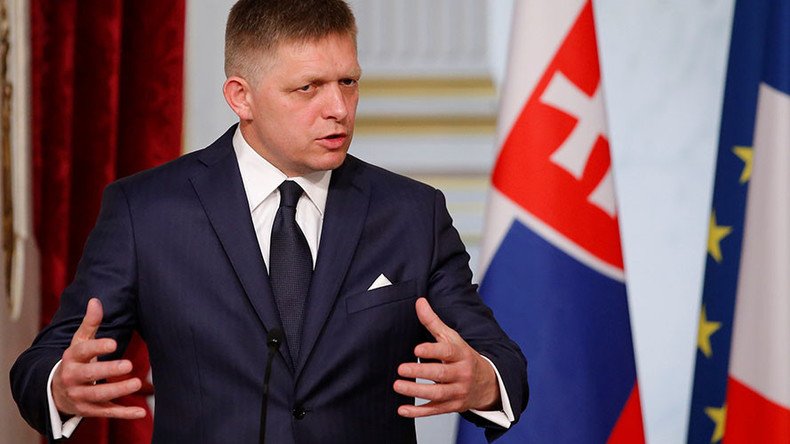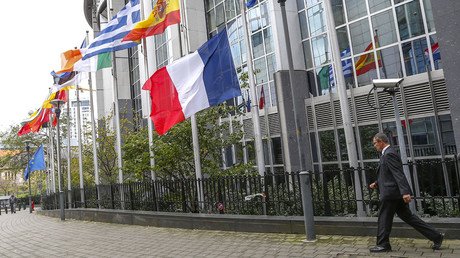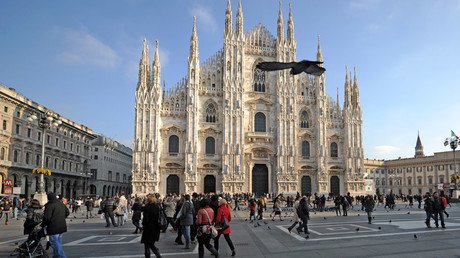Slovak PM urges EU to lift anti-Russian sanctions

Slovak Prime Minister Robert Fico has once again called on the European Union to put an end to the sanctions imposed on Russia over the conflict in Ukraine, saying they have proved ineffective.
The call to withdraw the sanctions came after a meeting between Fico and Russian President Vladimir Putin that was held in Moscow on Thursday.
“I personally think that it’s time to address the subject rationally and admit that they harm both the EU and Russia,” the Slovak PM wrote in a post on his Facebook page accompanied by a photo from his meeting with the Russian president.
The matter of sanctions is expected to be discussed during the EU foreign ministers’ meeting next week that Slovakia will chair, as it currently holds the rotating EU presidency.
“They [sanctions] did nothing for (solving) the sensitive issues which they were supposed to deal with. We agreed with Vladimir Putin that our common goal is to restore our trade ties,” Fico added.
Fico, who was reelected to a third term in March, is not the first European leader to speak out in favor of dropping the West’s anti-Russian sanctions. The same idea has been voiced by a number of EU officials, including Hungary’s Foreign Minister Peter Szijjarto, Italian Foreign Minister Paolo Gentiloni, and German Foreign Minister Frank-Walter Steinmeier, who wants to see the sanctions lifted gradually.
Luxembourg, Austria, Bulgaria, and Greece are also advocates of lifting the sanctions.
Czech President Milos Zeman holds a similar view. Most recently, he called on his government to seek ways to end the Russian sanctions at the opening ceremony of an annual agricultural fair in Ceske Budejovice on Thursday.
“The sanctions show our helplessness. If politicians want to support our agricultural [sector], the Czech Republic should express its position, which has been indecisive so far, in a clear way in the European Council, joining the countries that support the sanctions’ removal,” Zeman said, while stressing that he has been against the sanctions from the very beginning.
The legislative assemblies of four Italian regions – Tuscany, Lombardy, Veneto, and Liguria – have also passed resolutions urging that the EU sanctions against Russia be lifted. While those proclamations are not legally-binding, the regions hope they will attract the attention of Rome and Brussels. A similar resolution was backed earlier by the French National Assembly. The Cyprian Parliament has also approved a document appealing to the Cyprian government to begin work on lifting the sanctions, stressing the need to have Russia’s counter-sanctions on Cyprus lifted.
However, German Chancellor Angela Merkel made it clear last week that she doesn’t see any reason to lift the sanctions since there hasn’t been any progress in implementing the Minsk ceasefire agreement, the German RedaktionsNetzwerks Deutschland (RND) reported.
Relations between Russia and the European Union suffered a severe setback in 2014 when Crimea voted to leave Ukraine and rejoin Russia after a violent coup in Kiev. In addition, Moscow has been accused of supporting and arming rebels in eastern Ukraine by many West countries, which consequently imposed sanctions targeting Russia’s financial, energy, and defense companies, along with a number of government officials, businessmen, and public figures.
Moscow denies the West’s accusations and has responded by placing an embargo on a list of EU products. The EU farming sector lost nearly six billion dollars in revenue in 2015 alone due to Russia’s counter-measures, according to European Commission data released in April.
Nevertheless, on July 1, the EU’s economic sanctions were extended until January 31, 2017, while Russia’s counter-sanctions have been prolonged through the end of 2017.














